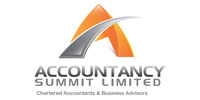Anyone who has earned income as a self-employed worker in the 2022/23 tax year must register for Self Assessment by 5 October if they haven't done so already.
HM Revenue and Customs (HMRC) is reminding anyone who is new to Self Assessment for the 2022/23 tax year that they must register online by 5 October 2023.
How to register as self-employed
You can register for Self Assessment on the GOV.UK website. Taxpayers that need to do this include anyone who has:
- Worked on a freelance basis in the past tax year;
- Set up a side hustle to earn money in addition to their PAYE job;
- Starting renting out a property as a landlord.
In fact, if a taxpayer has any income that they have not already paid UK tax on, they need to register for Self Assessment on GOV.UK. They will then receive a Unique Taxpayer Reference, which they will need when completing their tax return. The deadline for taxpayers to file their tax return online and pay any tax owed for the 2022/23 tax year is 31 January 2024.
How to stop Self Assessment
If a worker thinks they no longer need to complete a Self Assessment tax return for the 2022/23 tax year, they should tell HMRC before the deadline on 31 January 2024 to avoid any penalties.
HMRC has a wide range of resources to help customers file a tax return, including a series of video tutorials on YouTube.
Written by Rachel Miller.
